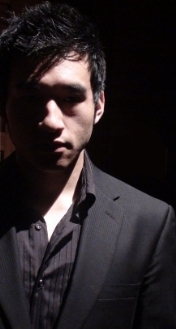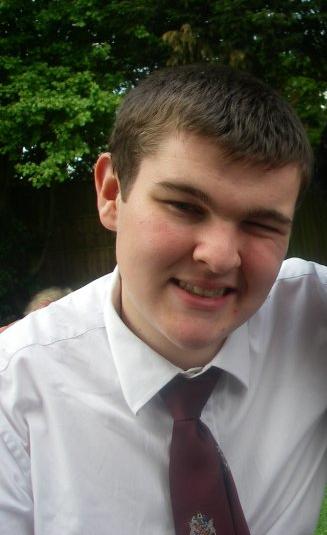
| . : News : . | . : Message of the Week : . |
You are currently viewing an archive of the Wilderness Guardians clan's IPB1 forums.
These forums were used by WG from 2008 to 2011, and now exist for historical and achival purposes only. For the clan's current forums, CLICK HERE. |
"You are a Wilderness Guardian. That northern wasteland; that land of blood, desolation and death is your dominion. Tonight we are going home." ~His Lordship |
|---|---|---|
| War Alert: OFF | Raid Alert: OFF | |
PM a WG Official |
||
Posted: May 20, 2008 05:42 am  | |||
                  IRC Nickname: His Lordship Group: Founder Posts: 6029 Member No.: 1 Joined: December 26, 2007 Total Events Attended: 129    | I'm 800 words under the mark of 3000. Hopefully he won't notice lol. Enjoy... If you don't want to read it all, that's understandable... just read the bolded introduction. ________________________ In the years leading up to his composition of Otello, Giuseppe Verdi had become increasingly isolated from the current trends of Italian opera, and in particular, the tendency for composers to look outside Italy for ideas and aesthetics. In an attempt to express his Italian patriotism, Verdi roused from his sixteen year hiatus as an operatic composer. The resulting Otello, however, seems to have taken on many of the characteristics that are present in the music dramas of Wagner. On one hand, Verdi hails the expressivity of the human voice, and the melody, as the two leading forces of the opera. On the other hand, he also tried to do away with the clear cut aria-recitative structures of his Italian predecessors in favour of a more Wagnerian continuous style of composition. Verdi’s use and treatment of the Shakespearian dramatic source is congruent in many ways, with Wagner’s story-telling, but in many other ways, he portrays humanity with greater depth, bringing light to the relationship between characters and motives behind their actions. Whilst on one level, Otello can be considered an Italian opera, on another it can be considered a music drama as well. Verdi’s most radical departure from his previous compositional style is his blurring of the distinction between aria and recitative. Whereas in traditional Italian operas, numbers can be extracted from the larger opera and performed in concert, Otello seems to be too continuous for such a treatment. Much like in Wagner’s Tristan und Isolde, Verdi keeps the audience in a constant state of anticipation and expectation, moving from one dramatic scene to the next. In much of the music, there seems to be a resistance against developing any single melody. Instead, the music moves from one melodic fragment to another. Take into consideration, the love duet that closes the first act. Otello begins by singing an extended melody (Già nella notte densa s'estingue ogni clamor), which is through-composed and lacking in any interior repetition or sequencing. Desdemona responds, singing Mio superbo guerrier! What we hear is a completely new melody, unrelated to what Otello had previously sung. Oh! com è dolce il mormorare insieme signals the arrival of a new melody, which is interrupted once more by te ne rammenti? and then Quando narravi l'esule tua vita and finally Un bacio. Verdi approaches the realm of Wagner in the way he does not dwell on one melodic idea, but it is important to make a distinction between his melodic treatment and Wagner’s. While Wagner’s melodies seem to grow out of each other, Verdi’s (at least in this particular duet) seem to interrupt each other, without hinting at continuity. Because these interruptions match Boito’s (the librettist) text seamlessly, we can accept it as a naturally progressing melodic flow. There is no repetition involved, nor is there any form of refrain or musical idea that Verdi returns to, or even a variation technique. Indeed, it is still possible to extract ‘set pieces’ from Otello, such as the ‘Ave Maria’ or the drinking song. Such an attempt would be futile for Tristan. Central to the Italian tradition is the clarity of the melody above all things. It is here that another distinction between Verdi and Wagner can be made. Despite his tendency to approach Wagner in many compositional aspects, Verdi retains his emphasis on the melody. Bonavia remarks: Wagner, heir of the great German tradition, is a contrapuntalist first and foremost; Verdi, the melodist, never uses or meant to use counterpoint with the same freedom and for the same purpose. He accompanies the voice, which is his chief concern. Verdi’s orchestration always tends to support the vocal lines, rather than exist as a separate entity, as it does in Wagner’s music dramas. In Otello, Verdi’s orchestration is rather complex in comparison to his earlier operas, and is often said to rival Wagner’s in terms of complexity. However, despite his orchestral innovations, Verdi retains simplicy. Examine the four cello solos that precede the abovementioned Già nella notte densa, or perhaps the organ pedal that begins at the start of the opera and lasts for hundreds of bars. Both instances highlight Verdi’s new method of achieving simplicity, giving clarity to the voices, while at the same time, his orchestration is more similar to Wagner’s than in his previous operas, with less stereotypical diatonalism. It is also important to note that Wagner’s emphasis on this orchestra does not make such a treatment a defining aspect of music drama. In many of Verdi’s earlier operas, the orchestra is given all the music, with the voice simply making declamations over the top (As present in Il Travatore, Azucena’s reveries) In terms of melody, there was also a departure from the bel canto tradition of Verdi’s predecessors. The melodic lines in Otello call for more vocal stamina, rather than agility. The consequence of this is greater emphasis on the drama, rather than the quality of the voice. Verdi does not attempt to embellish the vocal parts. In this sense, one can say that Verdi once again approaches Wagner, who’s aesthetic is concerned more with power rather than intimate quality. Consider, for a moment, the Credo of Iago in Otello. It is evident that the orchestra’s function is to punctuate Iago’s vocal part. Where Iago finishes a phrase with “nomo”, the orchestra comes to a halt. And where he sings “siccome crede la vedovella al tempio”, he is doubled in the woodwinds. Where he sustains notes, the orchestra flourishes. This is quite different from Wagner’s treatment, where the orchestra is an independent entity from the voices. Verdi truly does give his highest regards to the vocal parts, despite a more complex form of orchestration. In Otello more so than his other operas, Verdi, uses the orchestra as a participant in the story rather than mere accompaniment. Take into consideration, the abovementioned Credo. Here, Verdi uses the orchestra to characterise Iago’s evil, using low trills, loud unison passages, motivic fragments, and unmeasured tremolos. The text notwithstanding, it is easy to identify Iago as a villain. In this respect, Verdi’s orchestral writing is somewhat similar to Wagner’s, specifically in his music dramas. However, there is no denying that the music is less lyrical and quite some distance away from the old bel canto tradition, and so it seems that Verdi has create a hybrid between this tradition, and the German tradition whereby harmonic forces are of central importance. It is quite apparent that the harmonic language is certainly quite advanced, although maybe not as much so as Wagner's. Consider the “bacio” motif that concludes the first act. ( ) We can see the signs of late 19th century harmonic treatment. This is quite a far cry from Verdi’s traditional diatonic language. There are chromatic leading notes, and also unusual use of the 6/4 cadence in its two occurrences (the first in E, when the theme is ushered in, and the second one in C, which enters before the final cadence). These instances of the 6/4 chord highlight Verdi’s attention to the harmonic aspect of the music, which in this case seems to take importance over the vocal lines, where Desdemona remains static on C©, and Otello repeats a three note motif. In this way, Verdi’s music seems much more similar to the style of Wagner than it does to that of Donizetti or his other Italian contemporaries. There is some contention as to whether or not Verdi uses leitmotifs in Otello. There is definitely a recurring motif in the “bacio” theme, though there is general disagreement as to whether or not this is actually a leitmotif. Most scholars argue that it in fact, is not. “[Verdi’s recurring motifs] have no ‘stream of consciousness’ function” , as is required for them to classify as leitmotifs. Rather, they merely create a link between a present event and a past event. And whereas in Wagner’s music dramas, they often serve as the basis on which the music is built, in Otello, the “bacio” motif only serves to create a tie between the love scene at the end of the first act, and the moments where Otello kills Desdemona and later, himself. Such a practise of recalling music from previous poignant moments is not an uncommon practice in Italian opera. In this sense, Verdi’s use of a recurring motif does not venture into the realm of music drama. Here, Edward Naylor claims: …the grand and inclusive cause of the separation between [Italian operatic tradition and music drama] is, Leitmotiv in the Wagnerian sense… Wagner’s discovery of the leitmotiv as the basis for musical composition removed him from the Italian plane to another quite incompatible with it… And so it seems that because Verdi does not use the leitmotif as the basis of Otello, it is fundamentally not a music drama, according to Naylor. However, to single out leitmotif as the single defining element of a music drama is somewhat naïve. Another interesting element in Otello is Verdi’s choice of tenor. In Otello, Verdi employs a dramatic tenor, who’s German equivalent is the heldentenor. This is the second time he has done so, the first being Radames in Aida. It is important to note that the heldentenor voice is characteristically German, and features prominently in Wagnerian roles, namely Siegfried, Tristan, Parsifal, Lohengrin and Tannhauser. Translated, the title means “heroic tenor”, and is characterised by a rich, powerful and dramatic voice. Again, such a role is not associated with the Italian tradition, but more with the German one. Also, Desdemona is a dramatic soprano rather than a lyric soprano. So, in terms of voice types, Verdi seems less distant from the category of the music drama than he does from the Italian operatic tradition. Verdi’s decision to adapt a Shakespearean text distinguishes him from Wagner. The very essence of Shakespeare’s play is about portraying the characters’ humanity. And while it has been noted that Wagner was somewhat influenced by Shakespeare as well , Verdi’s treatment of Shakespeare differs greatly from Wagner’s. Where Wagner was influenced by Shakespeare’s idea of fables (as an example, note the parallel between the presentation of the Witches in Macbeth and of the three Nornen in Gotterdammerung, and likewise the three Rhine Daughters), Verdi was more concerned with the humanistic element of Shakespeare. The most significant portrayal of humanity is witnessed in Verdi’s treatment of love. Some argue that it is in Verdi’s treatment of the characters that separates him from the likes from Wagner and his music dramas. Many have come to consider the mythical aspect of Wagner’s music dramas to be a defining attribute of music drama in general. In this respect, Otello steers clear of the domain of the music drama. The characters are fundamentally human. Women, in particular, are given different treatment. Whereas in Wagner’s music they are often slaves to men, or idealized mythical figures, in Verdi’s music, they are real human beings, and in the case of Otello, in many ways, Desdemona is morally superior to Otello. Also, Verdi treats love with greater complexity than eroticism or blind obsession, focusing more on the complexities of the romantic relationship between Otello and Desdemona and it’s disintegration over the course of the opera. Verdi in general was concerned largely with the human condition and the experiences of people. This contrasts Wagner’s more idealistic and philosophical characterizations. Otello is driven by the relationships between characters, and their actions. One action leads to the next. Iago’s disdain for Othello leads him to plot against him and drive him away from Desdemona. Iago manipulates several characters. The plot is very much driven by action. This seems to be completely the opposite in the case of Wagner, who’s music dramas dwell on individual emotions, and intense dialogue between characters… after all, it does take Wagner several hours to explain two actions in Tristan. First, Tristan and Isolde fall in love, and second, they are found out. Moreover, there are political overtones in Otello, which are absent in Wagner’s music dramas. The story and characters relate to his feelings about Italy. Consider the opening patriotic choruses of victory, as Otello returns to his homeland. This gives us a link to the emergence of a free Italy for Verdi. Also, the righteous Otello, defender of the nation, is victimised by an ambitious politician. Such political messages help to distinguish Verdi more as an Italian operatic composer, rather than a composer of music drama. This said, there are a few similarities between characters. Like Desdemona, Brunhilde and Isolde also love and sacrifice themselves in its name. And Otello can be compared to Tristan. Whilst Verdi was a strong believer in keeping the Italian tradition alive, a closer examination of Otello hints at greater Wagnerian influence than Verdi would admit. On one hand, Verdi upholds the Italian opera tradition. The melody is of the greatest importance, and the orchestra acts to support the voices. It is also possible (although much more difficult than in his previous operas) to distinguish between aria and recitative. Verdi also saw to expressing the humanity of his characters, and retained simplicity in his orchestration, though in new ways. However, Otello exhibits several features that are normally attributed to music drama. The orchestra seems to have more independence from the voice than was previously the case, and the melodies seemed to be interrupted to the extent that they almost sounded like Wagner’s more continuous style of writing. Also, singers are required to forgo agility for stamina, and the voice types are more dramatic rather than lyric. Verdi is also less diatonic and more chromatic in Otello than he had previously been in his earlier operas, and also alludes to the use of the leitmotif, but not quite. All considerations made, Verdi’s Otello remains an Italian opera, but demonstrates some of the characteristics of music drama; not enough to allow it to be classified as one. It is ironic though that in his attempt to stir Italian patriotism through his opera, Verdi has borrowed techniques and treatments from Wagner more so than ever before. BIBLIOGRAPHY ABBATE, Carolyn. PARKER, Roger. Analyzing opera: Verdi and Wagner. University of California Press, Berkeley, 1989. BONAVIA, Ferruccio. “Verdi and his contemporaries” in Music & Letters, Vol. 4, No. 2. Oxford University Press, 1923. HEPOLSKI, James. Giuseppe Verdi, Otello. Cambridge University Press, Cambridge, 1987. ISTEL, Edgar., translated by BAKER, Theodore. “Wagner and Shakespeare” in The Musical Quarterly, Vol. 8, No. 4. Oxford University Press, 1922 LAWTON, David. “On the "Bacio" Theme in "Otello"” in 19th-Century Music, Vol. 1, No. 3. University of California Press, 1928. NAYLOR, Edward. “Verdi and Wagner” in Proceedings of the Musical Association, 20th Sess. Oxford University Press, 1893-94. PARKER, Roger. “Otello (ii)” in Grove Music Online ed. L. Macy (Accessed 11 May, 2008), <http://www.grovemusic.com> VERDI, Giuseppe. Otello [music] : in full score. Dover Publications, New York, 1986. VERDI, Giuseppe. Otello [sound recording]. Decca, London, p1961, c1987 --------------------  | ||
Posted: May 20, 2008 06:03 am  | |||
            IRC Nickname: Kiwi011 Group: Emeritus Posts: 3052 Member No.: 40 Joined: December 30, 2007 Total Events Attended: 21    | didnt read it but saw 800 less than needed. heres the solution- make some random semi-repeated, somewhat changed sentences and just bs a little more. It will be 300 less faster than you can say some long musical word i dont no. --------------------  | ||
Posted: May 20, 2008 06:15 am  | |||
                         IRC Nickname: Gorgemaster Group: Elite Guardian Posts: 9840 Member No.: 3 Joined: December 26, 2007 Total Events Attended: 540    | Mm. The worst thing you want to be doing with any essay is padding it out. It is so obvious it's stupid. This is not being terribly helpful but I suggest looking back at all the material you have and seeing if there is any sub-topic you left out or something. Gl with it --------------------    | ||
Posted: May 20, 2008 06:28 am  | |||
                  IRC Nickname: His Lordship Group: Founder Posts: 6029 Member No.: 1 Joined: December 26, 2007 Total Events Attended: 129    | Too late. Handing it in, in 10 minutes. --------------------  | ||
Posted: May 20, 2008 03:39 pm  | |||
          IRC Nickname: Yingy Group: Clan Friend Posts: 2205 Member No.: 27 Joined: December 30, 2007 Total Events Attended: 21    | Very nicely constructed piece of work, In the UK we have a 10% margine which means we can have 100 words below of above the desired word count, is the same for those who are in different countries? -------------------- Friend's Forver The Long Road Ahead - 91/99 Prayer   | ||
Posted: May 20, 2008 06:23 pm  | |||
         IRC Nickname: Tnuac Group: Emeritus Posts: 1806 Member No.: 51 Joined: December 30, 2007 Total Events Attended: 58    | Sounds like you know what you're talking about at least. -------------------- ~Aetas: carpe diem quam minimum credula postero~ "Seize the day and place no trust in tomorrow"  | ||
Posted: May 20, 2008 07:24 pm  | |||
                         IRC Nickname: Gorgemaster Group: Elite Guardian Posts: 9840 Member No.: 3 Joined: December 26, 2007 Total Events Attended: 540    | So Gene is this essay like really important, does it matter if you fail it, is it important for grades etc? When do you get the marks back --------------------    | ||
Posted: May 22, 2008 07:46 am  | |||
    IRC Nickname: Group: Guests Posts: Member No.: 0 Joined: January 1, 1970 Total Events Attended: 1    | And knowing this **** helps you write good music how? :s -------------------- | ||
Posted: May 22, 2008 08:15 am  | |||
                  IRC Nickname: His Lordship Group: Founder Posts: 6029 Member No.: 1 Joined: December 26, 2007 Total Events Attended: 129    |
I'm not sure yet. --------------------  | ||
Posted: May 28, 2008 02:56 pm  | |||
     IRC Nickname: Group: Ex-Member Posts: 173 Member No.: 204 Joined: February 5, 2008 Total Events Attended: 0    | lol, **** reading that. --------------------  ||WG At Heart Since April 2005|| | ||
Posted: May 28, 2008 03:41 pm  | |||
    IRC Nickname: Group: Guests Posts: Member No.: 0 Joined: January 1, 1970 Total Events Attended: 1    | damn, thats a lot of reading, gl on it lordy -------------------- | ||
Posted: June 3, 2008 02:25 pm  | |||
      IRC Nickname: Group: Ex-Member Posts: 580 Member No.: 42 Joined: December 30, 2007 Total Events Attended: 0    | Good luck... music simply is not interesting enough for me to read about. -------------------- We will be alive and we will walk and talk and eat and sing and laugh and feel and love. You plan the wars, you masters of men, plan the wars and point the way and we will point the gun. Join Wg Late 2004 | ||
Posted: June 5, 2008 09:40 pm  | |||
     IRC Nickname: Crucio01 Group: Clan Friend Posts: 162 Member No.: 750 Joined: June 2, 2008 Total Events Attended: 0    | ermz, what is this about? who is otello =[ im confused --------------------   | ||
Posted: June 22, 2008 09:39 pm  | |||
     IRC Nickname: chrisyabsley Group: Guest Posts: 53 Member No.: 161 Joined: January 25, 2008 Total Events Attended: 7    | Remember quality is always better than quantity. --------------------  | ||
Posted: June 22, 2008 10:06 pm  | |||
             IRC Nickname: bto Group: Emeritus Posts: 3815 Member No.: 196 Joined: February 3, 2008 Total Events Attended: 332    | Epic bump -------------------- bto  Ex-WG Warlord  "It is our direction, not our intentions, that lead us to our destinations." | ||
 Essay of Doom
Essay of Doom